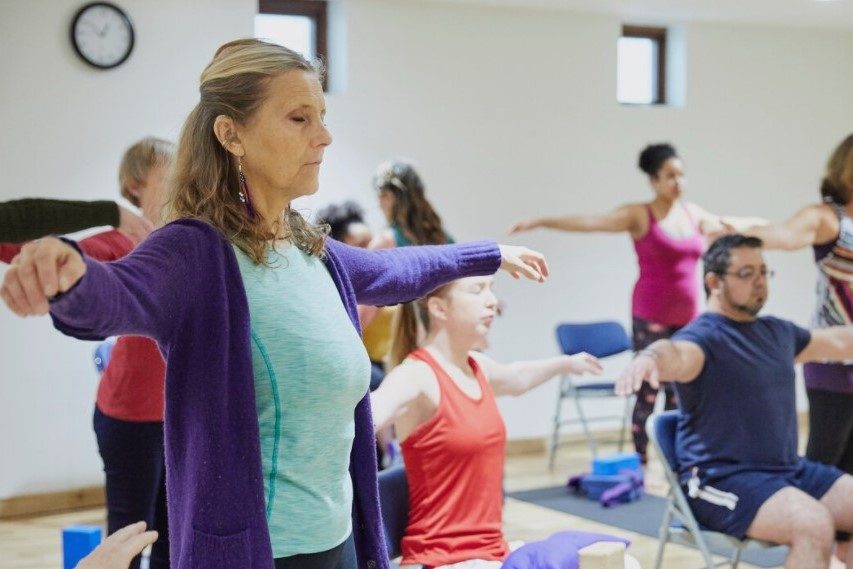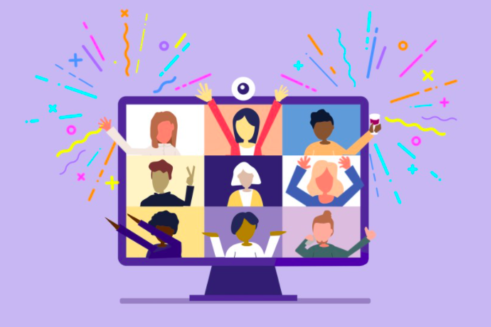
Counterintuitive creativity
Tough as it is, the lockdowns have not stopped social care professionals, organisations and services finding ways to provide amazing support.
The lockdowns have been hard for everyone involved in social care, but they have also brought opportunities and innovations which have inspired and supported others.
I was lucky enough recently to facilitate a workshop with Kirklees Council about how the local authority can take forward its vision for co-production. Co-production is about developing more equal partnerships between people who use services, carers and professionals. A total of 25 people took part online. It was a mix of social care practitioners and people who use care and support services.
Perhaps fearing the worst, I had made sure there was enough space in the agenda to give people the opportunity to let off steam and vent a bit. Yes, there were some legitimate concerns raised, but the majority used that time to speak about some of the innovative and creative work they’ve been involved in.
One example shared was the burgeoning of self-help and mutual aid that’s going on at the moment: “One hundred and forty self-help groups were created during the first lockdown, and they are continuing to operate in this one.”

Inspiration across the country
Kirklees is by no means a special case. Many local authorities and communities can take pride in the innovative work they have helped develop during this difficult year.
In Thurrock, for instance, drop-in centres, which used to operate in community buildings, have been moved online to become virtual ‘Talking shops’, as they are known locally.
These were advertised on the council’s website, the local Community Voluntary Service and with all community contacts. The social work teams arranged for practitioners from other teams and organisations to be available when the talking shops were in session.
This meant if someone had an issue requiring more than social care support, that person did not need to be referred anywhere, but could have immediate access to the right services and advice. If further conversations were needed, these could be arranged there and then.
In Cambridgeshire, an arts therapy team based in the Learning Disability Partnership was aware many people were struggling. Their routines had been impacted; they were unable to go to their workplaces or day placements, or meet with family and friends.
In response, the team decided to launched a call-out for images, songs, performances and poetry; as a way to see and hear the experiences of the learning disabled community during the lockdown. “The Arts of Lockdown” was built on these submissions and the virtual exhibition allows visitors from around the world to look and listen to the submissions from the safety of their own homes.

Virtual festival
Gig Buddies, a project run by the charity Stay Up Late, formerly an organisation devoted to helping people meet and go to events, had to change overnight and do everything online.
Weekly coffee mornings have been run on Zoom: with no agenda and no theme, just a chance for connection. Weekly socials have been run on Zoom, including pub quizzes, karaoke evenings, games nights, sing-a-longs and anything people have dreamt up.
They also launched Coronavirusfest – a live music festival run through Facebook from March until August 2020. It started with live music every night by musicians with and without learning disabilities and culminated in an epic 12 hour session!
Nationally, organisations like the Local Government Association, Skills for Care and SCIE continue to develop new resources while aim to help the sector. SCIE’s Covid-19 Hub has supported over 640,000 visitors and will continue to provide good practice, updated guides and webinars. Please do take a look.
This latest lockdown has hit people very hard. The winter ahead feels long. If you are in need of inspiration, you could do worse than talking to people working in social care. What they are achieving against the odds is inspiring.